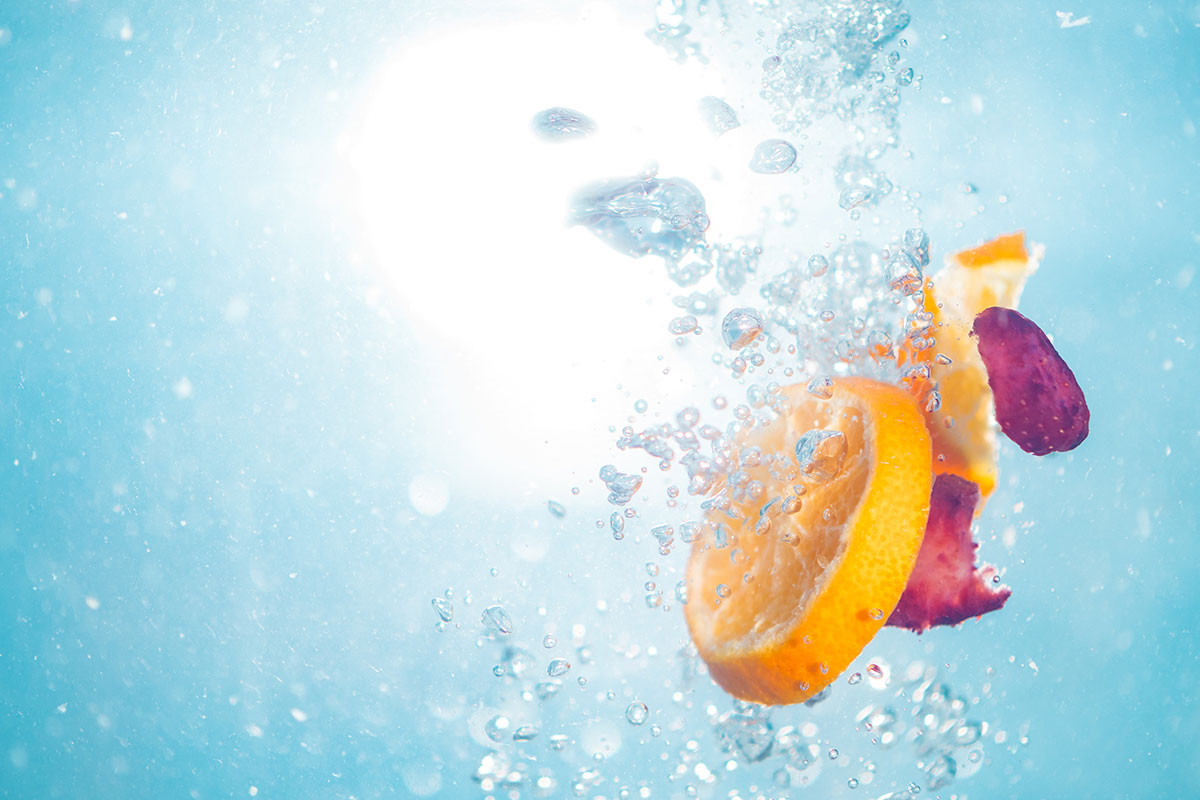Photo by Jamie Street on Unsplash.
Staying hydrated is a task that should be maintained throughout the year, but in the summer it should be more constant and important because the body loses more fluid during this season. You should drink small amounts throughout the day. You can bring a reusable bottle of water, this can help you remember to hydrate frequently. We tell you some tips to make your body feel fresh and hydrated in high temperatures, and how dehydration can lead to increase in the likelihood of some heat-related diseases, especially in older adults.
- Appropriate clothing
Dress in appropriate clothing for hot days, light-colored clothing, loose and light, preferably with a material that allows air to reach your skin. - Consumption of fruits and vegetables
Choose fruits and vegetables that help keep you hydrated, for example, watermelon, strawberries, lettuce, celery, spinach, tomatoes, they contain 90% water or more. - Drinks that hydrate
The amount of fluid you need depends on your body, the level of activity you perform, the local climate, and even the medications you consume. Ask your doctor about the correct amount of water for you. Water is the best liquid to hydrate our body since sports drinks or packaged juices contain high levels of sugars and artificial flavors. But if you are one of those who do not like pure water, you can add a bit of fruit juice to a glass of water or add pieces of fruit to give it a different flavor. Avoid caffeine and alcohol, as they contribute to dehydration. - Stay cool
It’s important to be aware of the level of heat that our body can withstand. This is why, if you feel uncomfortable, dizzy, weak or nauseated the best thing is for you to locate and enter a cooler place with air conditioning or a fan, and if possible, take a shower or dip into a cooling bath.
Exposure to high temperatures is not safe for everyone and it’s generally riskier in older adults or if you have health problems. The body regulates its temperature and uses several strategies to cool down like sweating, but if the body becomes dehydrated, it can no longer cool down and normalize the temperature. You may begin to feel weak, with headache, nausea, vomiting, muscle cramps and fatigue, symptoms that are called heat exhaustion. If the body temperature is not reduced quickly, this can turn into heat stroke or hyperthermia.
According to Harvard Health Publishing, Heat stroke is a form of severe and potentially fatal heat illness. Body temperature rises to 105 degrees Fahrenheit or higher and you develop neurological changes, such as mental confusion or loss of consciousness. At these high temperatures, body proteins and membranes around cells in the body, especially in the brain, begin to be destroyed or malfunction. Extreme heat can affect the internal organs, causing the breakdown of muscle cells of the heart and blood vessels, damage to internal organs and death.
The National Institute on Aging (NIA) mention some diseases that hyperthermia can cause:
Heat syncope is a sudden vertigo that can occur when active in hot climates. If you take a heart medication called a beta-blocker or are not used to heat, you are more likely to feel dizzy. Rest in a cool place, raise your legs and drink water so that the feeling of dizziness disappears.
Heat cramps are painful stretching of the muscles in your stomach, arms or legs. Cramps can result from hard work or exercise. Although the temperature and pulse of your body usually remain normal during heat cramps, your skin may feel damp and cold. Find a way to cool your body. Rest in the shade or in a cool building. Drink plenty of fluids, but not those with alcohol or caffeine.
Heat edema is a swelling in the ankles and feet when it is hot. Put your legs up to help reduce swelling. If that does not work fast enough, check with your doctor.
Heat exhaustion is a warning that your body can no longer stay cool. You may feel thirsty, dizzy, weak, uncoordinated and nauseated. You can sweat a lot. Your body temperature can stay normal, but your skin can feel cold and damp. Some people with heat exhaustion have a rapid pulse. Rest in a cool place and drink plenty of fluids. If you do not feel better soon, get medical attention. Be careful: heat exhaustion can progress to heat stroke.
If the respective methods do not reduce the body temperature enough and experience confusion, fainting, chills, hallucinations, unusual agitation or coma, you should attend emergencies immediately, since you should try to lower the temperature from the inside and perform the corresponding tests in the case had some other complications.
